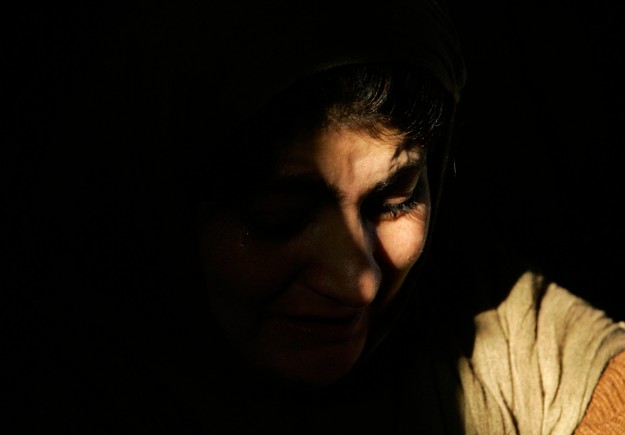
The World Population Review’s Rape Statistics by Country (2024) highlights the widespread scope and severity of issues of rape and sexual violence against women, revealing the alarming frequency and nature of this global crisis. According to the report, while Botswana holds the hopeless title of the ‘rape capital of the world,’ the so-called two largest democracies are not far behind. In the United States, the frequency of rape varies by state, but it averages out to one incident every one to two minutes. Similarly, the National Crime Records Bureau of India reports a disturbing rise in rape cases, with 31,000 cases recorded in 2022 alone. This statistic translates to nearly 85 women being raped every day in India. Rape culture is rampant in many countries, turning it into a global epidemic that disproportionately affects women.
However, the media, policy makers, political leaders and legal luminaries often portray incidents of rape as isolated events, focusing on specific criminal acts tied to specific times, places, and people. In many cases, women are unjustly blamed and shamed, accused of being the seducer or criticised for their choice of clothing, wrong company, or the timing of their actions in terms of going out. The failure of law enforcement, the breakdown of order, ineffective policing, lack of education, exposer and consciousness are frequently cited as significant factors contributing to the increasing number of rape cases worldwide. The use of alcohol and other drugs is often employed as a smokescreen to obscure the collective social, political, and legal accountability for the heinous and inhumane crime of rape.
There is no doubt that all these above reasons are all contributing factors of rape and sexual violence. However, these incidents are not merely isolated aberrations; they are the result of a systemic condition that perpetuates rape and dehumanises women. Rape is a product of patriarchal culture that seeks to control women’s bodies and labour. This is further exacerbated by capitalist culture, which commodifies women’s bodies as objects of sexual pleasure and reduces them to mere reproducers of labour power and pleasure. Both patriarchy and capitalism create an unequal power structure where men control, dominate, discriminate and disenfranchise women at every stage of life. Rape and all forms of sexual violence are integral tools of patriarchal and capitalist control perpetuated by men.
Historically, rape has existed both in ancient and medieval periods, and there are also religious roots associated with it. In Sacred Witness: Rape in the Hebrew Bible (2021), Susanne Scholz provides redemptive reflections on rape in the troubling texts of the Hebrew Bible. However, most religions are inherently misogynistic, where everyday sexism is normalised and naturalised. Religious culture domesticates men and women with a patriarchal consciousness, where the subjugation of women is normalised as a natural state. Women are worshipped as mothers, loved as sisters, and celebrated as friends, partners, and wives, but within a culture that simultaneously undermines them in their everyday lives.
Many patriarchal cultures consider women as repositories of honour and family dignity, defining their character by what they do with their bodies, as if their genitals symbolise the cultural pride of patriarchy. Men kill women to protect, humiliate or assert each other’s cultural pride and honour. Such patriarchal cultures normalise violence against women. This double standard is a strategy to justify subjugation in real life while celebrating women in predatory cultural and religious performances. The culture of “hate the sin and not the sinner” is part of this religious discourse, where women are treated as if they are the repository of all sin, impurity, and other devilish qualities, necessitating the intervention of male saints for the purification of their bodies and minds.
Many commentators, policymakers, and political leaders have dismissed ‘rape culture‘ as a myth since the term was coined by the New York Radical Feminists Collective in the 1970s. ‘Rape culture’ is no longer a myth. Men are socialised into this culture on an everyday basis, which contributes to rape and sexual assault against women. Popular cultures that originate from religions create and nurture vulnerable conditions for women, where rape culture is normalised, and patriarchal capitalism sustains it. Religion, patriarchy and capitalism are the three pillars of ‘rape culture’ where victims are blamed for their own assaults. Therefore, conviction rates in rape cases worldwide are very low. Such a legal culture of impunity encourages rape culture where rapists and perpetrators of sexual violence roam free while survivors endure various forms of mental, physical, social, sexual, cultural, economic, and professional trauma. As a result, many rape victims even commit suicide. The death did not end the slander, character assassination, blame, and shame directed at the victims of rape.
The legal frameworks addressing rape and sexual violence, from the Code of Hammurabi, the Code of Ur-Nammu, the Laws of Eshnunna, the Middle Assyrian Laws, and the Hittite laws within the Code of the Nesilim to modern-day courts and legal infrastructures, have failed to end rape and sexual violence against women. Laws, courts, and institutions of governance have not adequately protected women from the predatory influences of religion, patriarchy, and capitalism. This failure is partly because these laws, courts, and institutions of governance are predominantly led by men and shaped by religious and patriarchal capitalist systems.
Therefore, it is essential to integrate the struggle against rape and sexual violence with the wider struggles against religion, patriarchy, and capitalism. These struggles are intertwined; women cannot be safe as long as religion, patriarchy, and capitalism continue to exist and influence everyday life. Women who are free from religion, patriarchy, and capitalism are truly free from men to pursue and realise their dreams.
